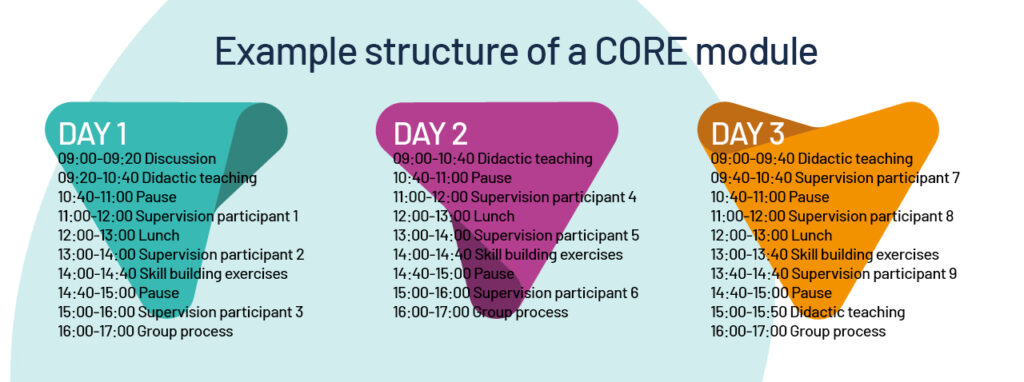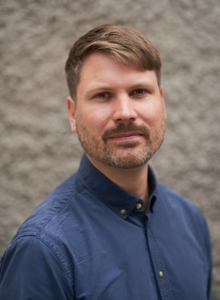

The second Hungarian ISTDP Core Training group will start in January 2025 for Hungarian clinicians! This Intensive Short-Term Dynamic Psychotherapy Core Training is a three-year hybrid (online and in-person) education program that aims to deepen both the theoretical understanding and the practical application of ISTDP. The language of the training will be English.
The Core Training features two teachers of ISTDP Sweden. Our dear colleagues of Glenn Kristoffersson and Thomas Hesslow will help participants to deepen their psychodynamic knowledge and practical skills in applying ISTDP, treating patients with a wide range of problems including depression, anxiety, physical symptoms, relationship issues, problems of self-worth, and other patterns of self-defeating behavior.
Core Training in ISTDP
The training group meets for twelve three-day modules over a period of three years from September 2024, which means one module approximately every three months. In total, the training consists of 36 full days, which in total contain approximately 250 teaching hours. Half of the modules will be held in person in Budapest, half of them via zoom in the first year.
Each three-day module contains theory, video observation, skills training / role-playing and supervision based on the course participant’s own therapy video films. Since many of the training elements are experience-based, the training takes place in small groups of 6-10 people, and great emphasis is placed on creating a safe collaborative climate in the group. Between each three-day module, course participants are expected to continuously watch their own video recordings, read course literature and do role-playing exercises on their own. Participants are also expected to take individual ISTDP tutoring between each module. Since many of the educational elements are experience based, great emphasis is placed on creating a good, compassionate climate of cooperation in the group.
Year One: Treating Low and Moderate Resistant Patients
During the first year, the training focuses on skills that aim to establish effective therapeutic collaboration with different types of patients. Particular emphasis is placed on helping the participant to recognize and respond to different types of patient reactions such as emotions, anxiety reactions and defense. For example, exercises include structuring the patient’s problems in a structured way, helping the patient to see and turn towards dysfunctional strategies and to increase the motivation to approach mixed feelings.
- Module One: Establishing a Therapeutic Focus
- Module Two: Anxiety
- Module Three: Defenses
- Module Four: Maintaining an Effective Focus
Year Two: The Spectrum of Fragility
During the second year, the focus is on developing skills for working with patients who have various forms of emotion regulation deficiencies. The participant is introduced to the skills used to work with self-harming behavior, eating disorder problems, major depression, medically unexplained symptoms, personality problems and psychotic symptoms. In the ISTDP literature, this is called the graded format. For example, exercises include increasing the patient’s self-observing ability, switching between high and low emotional intensity, dealing with self-critical comments from patients, and responding to black and white thinking, denial, and projections.
- Module Five: The Graded Format
- Module Six: Restructuring Regressive Defenses
- Module Seven: Building Self-Observing Capacity
- Module Eight: Restructuring Defensive Affects
Year Three: Highly Resistant Patients
During the third and final year, the focus is on working with the more challenging techniques within ISTDP for working with patients who are passive, distant and over-controlled in the therapy room. The participant is also given the opportunity to conceptualize and increase their own emotional capacity to be able to use the more confrontational aspects of the treatment in an empathetic and warm way. For example, exercises include how to step up the emotional intensity when needed, how to increase your emotional endurance as a therapist and how to help the patient turn against their own resistance.
- Module Nine: Superego Pathology
- Module Ten: Transference Resistance
- Module Eleven: Unlocking the Unconscious
- Module Twelve: Consolidation
In addition to the ISTDP-specific skills, the training is permeated by general psychotherapeutic skills, such as strategies to increase the patient’s expectations of treatment results, to improve the therapeutic work alliance and to respond to the patient in an empathetic, warm and genuine way.

Target group and eligibility
This is a workshop open to registered Hungarian healthcare professionals (holding an „Egészségügyi szolgáltatás nyújtására jogosító Működési engedély„) who are working/studying in the Hungarian healthcare system, including:
- psychologists with a healthcare registration (health psychologists, neuropsychologist, clinical psychologists),
- psychotherapists,
- psychiatrists or
- students of the above fields.
Our apologies, at the same time people who don’t fit the „Hungarian registered mental health professional working/studying in Hungary” criteria above, like
- got their degrees, are registered or working in other countries,
- MA psychology students,
- psychologists without a clinical psychology or health psychology or neuropsychology certificate/studies, etc
won’t be accepted.
Certification
The education leads to the ISTDP Institute’s certification as an ISTDP therapist. For certification, attendance at all modules is required and that the participant regularly takes ISTDP supervision during the course of the training. There are no grades.
The course is accredited by the ISTDP Institute and do not have any accreditations in Hungary.
Supervision
- Group supervision: In each of the twelve modules each participant will get one hour of supervision in the group.
- Individual supervision: Between each module each participant is expected to attend one hour of supervision
Literature
- Abbass, A. (2015) Reaching through the Resistance. Kansas City, Missouri: Seven Leaves Press.
- Coughlin, Della Selva, P. (1996) Intensive Short-Term Dynamic Psychotherapy. London: Karnac Press.
- Coughlin, P. and Malan, D. (2006) Lives Transformed. London: Karnac Press.
- Frederickson, J. (2013) Co-Creating Change: Effective Dynamic Therapy Techniques. Kansas City, Mo.: Seven Leaves Press.
Take a look at the Könyvtár/Library section for more information.
Time and money investment into you and your practice
The exact dates and location of the in person modules will be finalized together with the Core Training participants.
The cost of each Module will be 120.000 HUF / 350 USD for participants and 80-100 USD per hour for individual supervision between the modules.
Trainers

Glenn Kristoffersson is a registered psychologist and ISTDP teacher and supervisor with extensive experience working with complex populations.
He has been practicing ISTDP since 2016 in Swedish psychiatry, and has received continuous supervision from ISTDP experts Allan Abbass and John Rathauser since 2020. Currently, he provides therapy and supervision in private practice in Stockholm and teaches as a part of the Swedish ISTDP Institute at various core training groups in Stockholm and Budapest.

Thomas Hesslow is a certified psychologist and ISTDP therapist in Malmö, Sweden. He is a board member of the Swedish Association for ISTDP and one of the founders of the Swedish ISTDP Institute.
Beside working with therapy, supervision and education in private practice, he also teaches at three different Universities: University of Stockholm, Lund University and also in the Högskolan SAPU which is the Scandinavian Academy for Psychotherapy. Before specializing in ISTDP, he worked also with CBT (Cognitive Behavioral Therapy) and DBT (Dialectical Behavior Therapy).
Registration of interest
Please fill in the form here or go to: https://forms.gle/P6tRXuhY4BGAQxoh6
Photo: Image by rawpixel.com on Freepik
